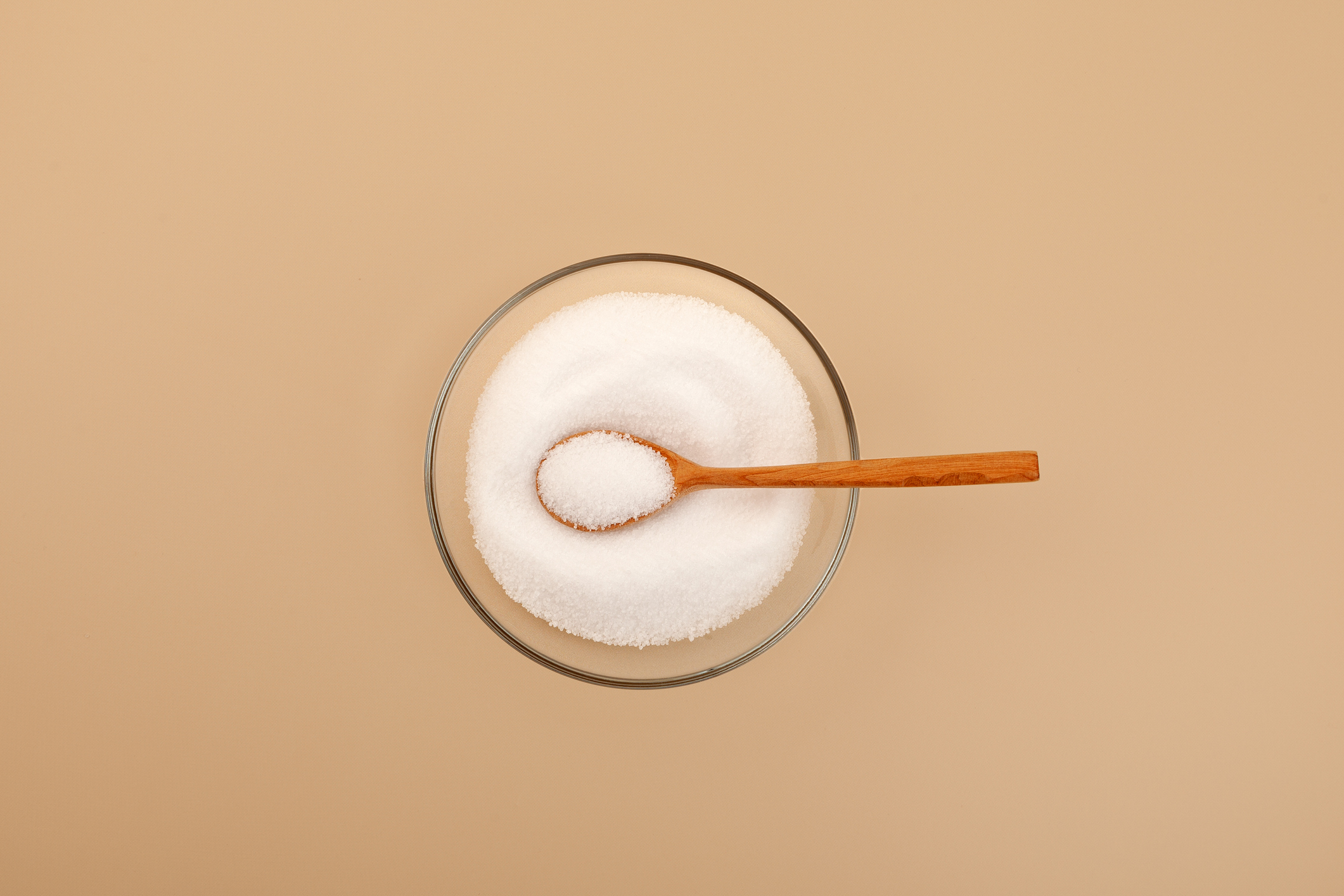Get Easy Health Digest™ in your inbox and don’t miss a thing when you subscribe today. Plus, get the free bonus report, Mother Nature’s Tips, Tricks and Remedies for Cholesterol, Blood Pressure & Blood Sugar as my way of saying welcome to the community!
The not-so-sweet stroke danger of two popular sweeteners

In recent years, artificial (or “non-nutritive”) sweeteners have become a popular alternative for those looking to reduce their sugar intake.
These low-calorie or no-calorie substitutes are often recommended in dietary guidelines, especially for individuals with cardiometabolic diseases such as obesity and diabetes.
However, the long-term effects of these sweeteners on heart health have not been thoroughly evaluated. A recent study has shed light on the potential risks associated with one such sweetener: xylitol.
What is xylitol?
Xylitol is a type of sugar alcohol commonly used as a low-calorie sweetener and sugar substitute. It occurs naturally in very small amounts in various fruits and vegetables and is also produced in our bodies as part of normal metabolism.
For use in food production, xylitol can be made by exposing corn fiber to certain fungal strains or it can be chemically extracted from certain wood species and agricultural waste.
Xylitol is widely used in sugar-free gum, mints, and other products due to its sweetness and ability to prevent tooth decay through the unique effects of xylitol on oral bacteria, saliva production, and acid levels in the mouth.
Why is xylitol used?
Xylitol is popular among those looking to reduce calorie intake and manage blood sugar levels. It provides the sweetness of sugar without the associated calories or glycemic load, making it a suitable alternative for people with poor blood sugar control.
As another bonus, xylitol delivers some dental benefits, as outlined above. What could possibly go wrong?
New safety concerns
A recent study conducted by the Cleveland Clinic has raised concerns about the potential cardiovascular risks associated with xylitol. This research follows an earlier study that linked another sugar alcohol, erythritol, to an increased risk of heart disease.
For xylitol, researchers examined data from over 2,000 individuals and found that those with the highest levels of this sugar alcohol in their blood were about 50% more likely to experience a cardiovascular event, such as heart attack or stroke, over the next three years as compared to those with the lowest levels.
The study also explored how xylitol affects blood components called platelets, which play a crucial role in blood clotting. When human platelets were exposed to xylitol, they became more sensitive to clotting signals, similar to the effects observed with erythritol. This increased sensitivity to clotting signals can lead to faster blood clot formation and artery blockage, as demonstrated in experiments with mice.
Further tests involving 10 healthy individuals drinking a xylitol-sweetened beverage, showed that blood xylitol levels spiked 1,000-fold within 30 minutes of consumption and returned to baseline after 4 to 6 hours.
During this period, platelets were more sensitive to blood clotting signals, suggesting that xylitol consumption could have immediate negative effects on cardiovascular health.
The findings from this study indicate that xylitol, like erythritol, may pose cardiovascular health risk by promoting blood clot formation.
This potential risk underscores the need for further safety studies on sugar alcohols used as artificial sweeteners. While xylitol is widely regarded as a healthier alternative to sugar, there’s no question that its potential impact on heart health warrants careful consideration and more comprehensive research.
As a general rule, I try to avoid consuming artificial sweeteners. While I don’t think the occasional breath mint or piece of sugar-free gum is a problem, I always look for artificial sweeteners and sugar alcohols in the ingredient list of every food and beverage product I’m considering at the grocery store – and put the item back on the shelf if I find any lurking in there.
An important note – sugar alcohols like xylitol and erythritol do not need to be listed as sugars or added sugars on a nutrition facts panel. That means:
- The food label might be screaming “low sugar” or “no added sugar” but still be full of ingredients that are counterproductive to health, and…
- The only way to know if there’s artificial sweeteners in the food is to painstakingly scour the ingredient list.
Natural ways to satisfy your sweet tooth
Craving something sweet without the sugar rush? Opt for naturally sweet foods that also pack a nutritional punch and plenty of fiber. Fresh fruits like grapes, pineapples, mangoes, bananas, melons, cherries, apples, pears, plums, peaches, figs, and even cherry tomatoes can be satisfyingly sweet.
Dried fruits such as raisins, dates, and apricots often taste even sweeter than candy.
And here’s the best part – just because they are naturally sweet and naturally high in sugar does not mean fruits will spike your blood sugar levels! Nature designed fruit to be sweet so we would want to eat it — and get the fiber, vitamins and phytonutrients we need to keep us healthy. Nature did not design fruit to make us sick.
At Step One Foods, our products get their sweetness from whole ingredients like dates, raisins, bananas, and even carrots. We never add fake sugars or sugar alcohols. Because we believe you shouldn’t have to scour ingredient lists to protect your health.
Editor’s note: Are you feeling unusually tired? You may think this is normal aging, but the problem could be your master hormone. When it’s not working, your risk of age-related diseases skyrockets. To reset what many call “the trigger for all disease” and live better, longer, click here to discover The Insulin Factor: How to Repair Your Body’s Master Controller and Conquer Chronic Disease!














